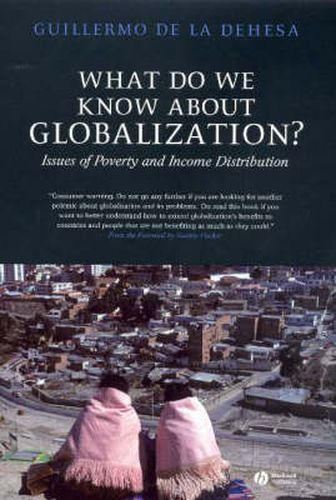Readings Newsletter
Become a Readings Member to make your shopping experience even easier.
Sign in or sign up for free!
You’re not far away from qualifying for FREE standard shipping within Australia
You’ve qualified for FREE standard shipping within Australia
The cart is loading…






What Do We Know About Globalization: Issues of Poverty & Income Distribution examines the two fundamental arguments that are often raised against globalization: that it produces inequality and that it increases poverty. This presents a lively and accessible argument about the impact and consequences of globalization from a leading figure in economics. Dehesa is Chairman of the Centre for Economic Policy Research and a member of the Group of Thirty. The book demonstrates the ways in which wealthy nations and developing countries alike have failed to implement changes that would result in a reversal of these social ills; dispels the notion of the so-called ‘victim of globalization’, demonstrating how, despite popular belief, acceleration of globalization actually stands to reduce the levels of poverty and inequality worldwide; and, asks whether increased technological, economic, and cultural change can save us from international income inequality, and by extension, further violence, terrorism and war.
$9.00 standard shipping within Australia
FREE standard shipping within Australia for orders over $100.00
Express & International shipping calculated at checkout
What Do We Know About Globalization: Issues of Poverty & Income Distribution examines the two fundamental arguments that are often raised against globalization: that it produces inequality and that it increases poverty. This presents a lively and accessible argument about the impact and consequences of globalization from a leading figure in economics. Dehesa is Chairman of the Centre for Economic Policy Research and a member of the Group of Thirty. The book demonstrates the ways in which wealthy nations and developing countries alike have failed to implement changes that would result in a reversal of these social ills; dispels the notion of the so-called ‘victim of globalization’, demonstrating how, despite popular belief, acceleration of globalization actually stands to reduce the levels of poverty and inequality worldwide; and, asks whether increased technological, economic, and cultural change can save us from international income inequality, and by extension, further violence, terrorism and war.